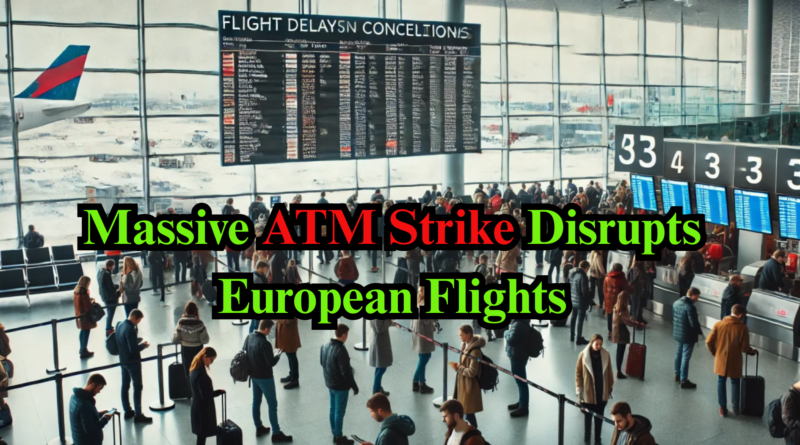Massive ATM Strike Disrupts European Flights
In early July, a major disruption rippled through European skies as French air traffic controllers (ATCs) embarked on a two-day strike demanding improved working conditions and increased staffing. The walkout, organized by France’s primary ATC union, saw participation from hundreds of control tower workers, grounding thousands of flights across the continent. The French aviation sector has faced mounting pressure in recent years due to staff shortages, and this latest protest highlights the critical vulnerability in Europe’s airspace system.
The impact of the strike was widespread, with more than 3,000 flights either canceled or delayed. Budget carriers such as Ryanair and easyJet were among the hardest hit, with some routes experiencing delays of up to 12 hours. The ripple effect extended well beyond France, affecting airspace in neighboring countries like Spain, Germany, Italy, and the UK. Passengers expressed frustration over the sudden disruptions, with many left stranded in airports without immediate accommodation or rebooking options.
According to Ryanair, the disruption caused losses exceeding €15 million, while easyJet reported a similar financial blow. Both airlines criticized the European Union for failing to create a unified air traffic management policy, which could minimize the fallout from national strikes. The airlines argue that a single European sky strategy would allow other countries’ controllers to reroute traffic effectively during strikes, preventing continent-wide chaos.
The strike has renewed calls for reforms in Europe’s air traffic control system. Industry leaders, including the International Air Transport Association (IATA), have urged EU regulators to prioritize investments in automation and cross-border coordination. Without such measures, analysts warn that summer travel in Europe may continue to face severe instability, especially with more strikes threatened in France, Italy, and Greece over similar labor disputes.
In response to the uncertainty, a growing number of travelers are opting for high-speed rail networks, particularly within France, Germany, and Spain. Train operators like SNCF and Deutsche Bahn have reported increased bookings, suggesting a shift in short-haul travel preferences. This trend could have long-term implications for regional air travel, especially if disruptions continue and rail infrastructure receives further investment.
Looking ahead, the European Commission has indicated that it will open dialogue with ATC unions and national aviation authorities to prevent future large-scale disruptions. However, critics argue that without immediate structural changes, the region’s aviation industry remains dangerously exposed to labor unrest. As summer tourism peaks, both travelers and airlines are bracing for a turbulent season in the skies.




